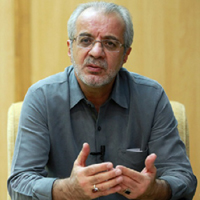The Future of Media Consumption: A Delphi Case Study
Author(s):
Abstract:
Today, the use of media around the world is very high and with the advent of technology, more opportunities have been created for audiences around the world in different situations, places, and with different behaviors. This opportunity has expanded the media sphere and has changed the means in which audience interacts and uses media. In recent decades, due to the dramatic changes in technology, economics, politics and society, the attitude and role of media audiences around the world has changed dramatically, which in turn has affected media strategies, content production as well as changes in business models of media. In the present study, Delphi futures study method is used and the views of 15 media professionals have been studied and analyzed regarding factors affecting consumption of future media audiences. The findings suggest that in the future audiences will not have any restrictions on the means, communication tools, time, and place of consumption of media and they can use the medium under any conditions. Furthermore their role will be constantly changing between the sender and the recipient (interactive communication model). These audiences have the power to choose from a wide range of content and services from different platforms and ultimately, they can generate content and become smart consumers, prosumers and producers, all of which are due to the audience segmentation in the media convergence environment.
Keywords:
Language:
Persian
Published:
Journal of Culture - Communication Studies, Volume:19 Issue: 43, 2019
Pages:
83 to 106
https://www.magiran.com/p1919735
سامانه نویسندگان
مقالات دیگری از این نویسنده (گان)
-
The future of Audio Media: based on the Socio-technical Systems Approach
Mehdi Mirmazaheri *, Hassan Khojaste Bagher Zahe, Mohammadrahim Eivazi
Journal of Strategic Management Studies of National Defense Studies, Spring 2025 -
Examining the situation and implementation solutions of data governance in organizations (Islamic Azad University case study)
Mohsen Finizadeh Bidgoli, Afsaneh Mozaffari *, Hassan Khojaste Bagherzadeh, Aliakbar Farhangi
Journal of Information Processing and Management,



